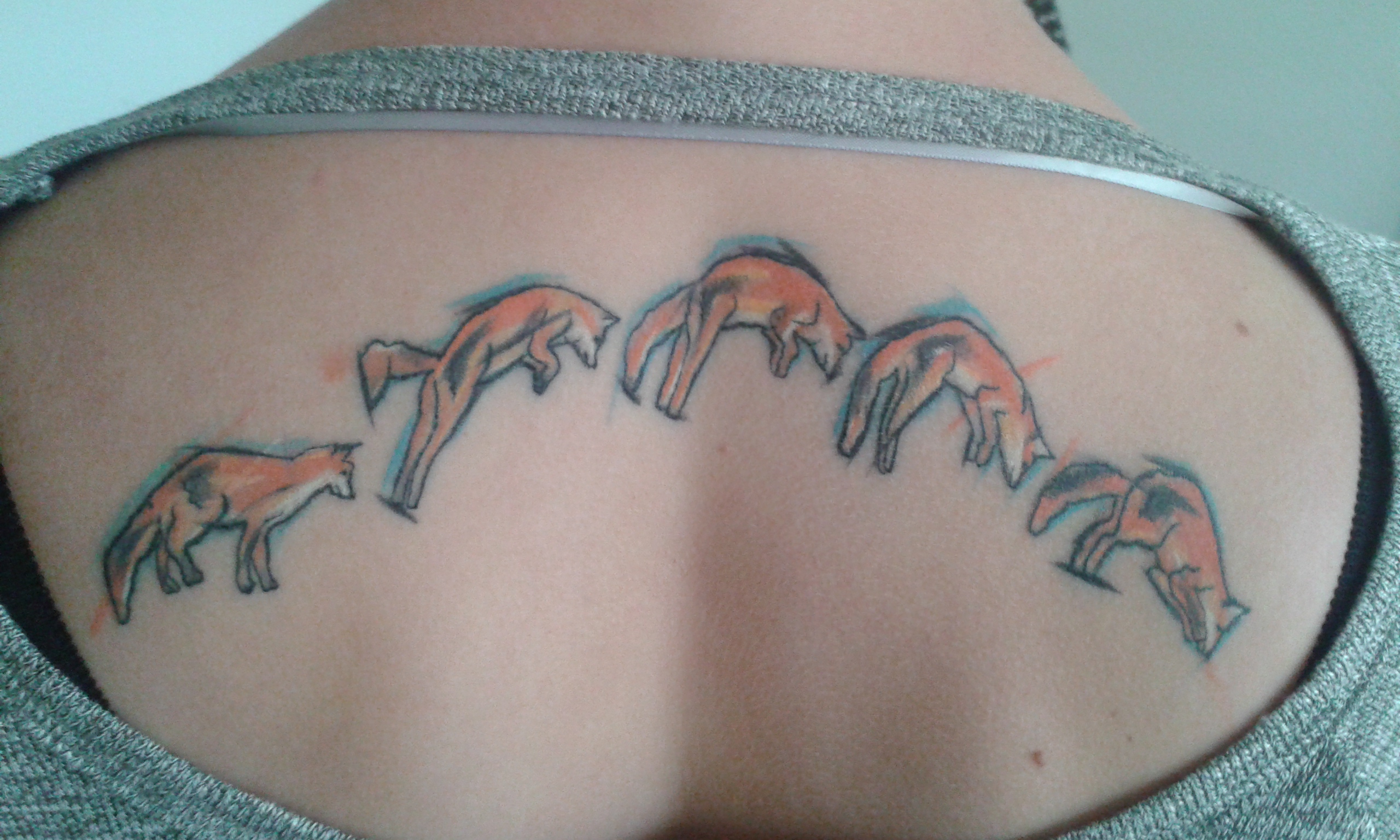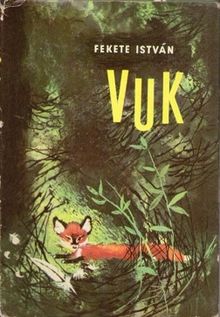Growing up in Slovakia and attending a Hungarian primary school, I was always encouraged to read in Hungarian and to never forget the great Hungarian authors. One of my favourite stories was by István Fekete called Vuk, a story about a young fox which was adapted into an animated film, which I used to have on a VHS tape and watch all the time. ‘Great stories involve characters whom you cannot forget’ (Maass, 2002) – a view which is certainly true for Vuk, so much so, that I have a leaping fox tattoo.


However, to be honest, I barely remember other specific books I had read as I was growing up even though I was a frequent visitor to our small town’s library. I also don’t remember my parents reading to me – 3rd child-syndrome. I do remember reading a lot of non-fiction, usually books full of facts about Egypt, animals, Greek mythology, space, and other topics. I used to be a member of a heritage group run by the librarian – we would get together every Saturday, read Hungarian folklore, learn songs, poetry, traditional dances, and regularly perform. My brothers would always taunt me with this famous tongue twister: Répa, retek, mogyoró, korán reggel ritkán rikkant a rigó which translates to Carrot, radish, peanut, blackbirds rarely cry out in the early morning; I can thank this group for my ability to roll my Rs, which is quite crucial in the Slovak and Hungarian language, so I am forever thankful for that time.
Two teachers greatly affected how much I enjoyed reading the required books by how enthusiastic they were about them and how they did not make me feel like any of my answers were wrong – when nobody else would put up their hands to answer the question, I would try to do my best. And everyone in the classroom was grateful for my sacrifice.
I always enjoyed browsing the library shelves and taking home the books to read. As I got older, I was still borrowing a mountain of books, however, hanging out with my friends became a priority so I barely got through even just one of them. I cringe when thinking about how I wanted to keep up the appearance of reading a lot. What was I thinking?!
It all changed when I started browsing the small section of English fiction books when I was around 16. The first English book I have ever read was The Cider House Rules by John Irving. Not exactly the easiest book to pick up but I enjoyed it none the less. Quite surprising considering I probably didn’t grasp the language or the themes behind the book completely – I think I will have to pick it up again and give it a second read.
Next, I read all the Harry Potters (a little late, I know) and continued reading books in English from A Clockwork Orange to Siddharta. Nowadays, I mostly read in the evenings, just before bed. Currently reading Unbroken by Laura Hillenbrand after finishing the assigned books for our literature course.
Next, I read all the Harry Potters (a little late, I know) and continued reading books in English from A Clockwork Orange to Siddharta. Nowadays, I mostly read in the evenings, just before bed. Currently reading Unbroken by Laura Hillenbrand after finishing the assigned books for our literature course.
‘There is strong evidence from experimental and correlational research that confirms that self-selected reading leads to superior development of literacy, including vocabulary, grammar, writing style, reading ability, and spelling’ (Renandya, 2019).
Looking back, the community I was part of greatly influenced my reading habits and I was lucky to have a library, right around the corner, with an enthusiastic librarian – who is still alive and kickin’! At my current internship, I see students enjoying books because the teachers and the school librarian, like mine, create a rich and inviting environment in the classroom and library. Furthermore, beginner English learners at my internship are encouraged to self-select a book to work with over the course of a unit. Thus, their intrinsic motivation is higher and are more eager to develop their literacy.
In this blog, you will have the pleasure of reading about those assigned books from our literature course. First time doing this, so be gentle.
Bibliography
Maass, D. (2002). Writing the Breakout Novel. Published by Writer’s Digest Books
Renandya, W. A. (2019). The Power of Reading: Case Histories of Second and Foreign Language Readers. Language and Language Teaching.